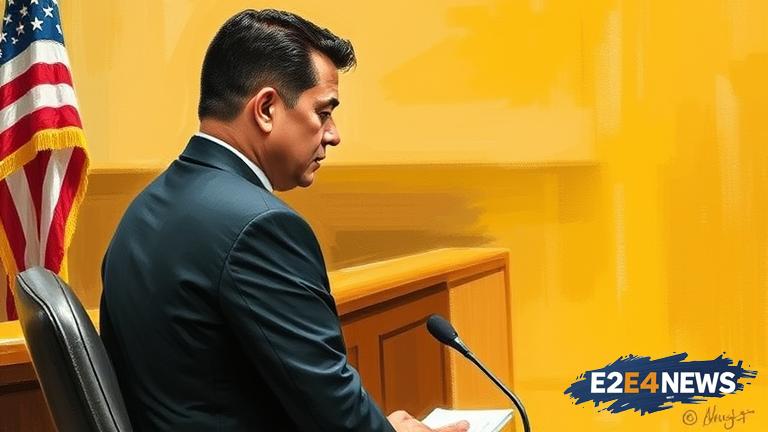A judge in Guam has delayed the sentencing of Ralph Ricon, a man convicted of drug-related offenses, in order to review his claim for custody credit. Ricon’s sentencing was initially scheduled to take place, but the judge decided to postpone it to allow for a thorough review of his custody credit claim. The defendant’s lawyer argued that Ricon should receive credit for time served while in custody, which could potentially reduce his sentence. The prosecution, on the other hand, disputed this claim, stating that Ricon’s time in custody was not eligible for credit. The judge ultimately decided to delay the sentencing to ensure that Ricon’s custody credit claim is properly reviewed and calculated. This decision highlights the importance of accurate custody credit calculations in the sentencing process. The case against Ricon involved the possession and distribution of illegal drugs, which are serious offenses in Guam. The island territory has been grappling with a drug epidemic in recent years, and law enforcement agencies have been working to combat the problem. Ricon’s conviction is a significant step forward in the fight against drug crime in Guam. However, the dispute over his custody credit claim has raised questions about the fairness and accuracy of the sentencing process. The judge’s decision to delay the sentencing is a prudent one, as it ensures that Ricon’s rights are protected and that justice is served. The review of Ricon’s custody credit claim will involve a thorough examination of his time in custody, including the dates and duration of his incarceration. The court will also consider any relevant laws and regulations governing custody credit in Guam. The outcome of this review will have a significant impact on Ricon’s sentence, and potentially on the sentences of other defendants in similar cases. The case has sparked debate about the need for clearer guidelines and procedures for calculating custody credit in Guam. Some have argued that the current system is confusing and prone to errors, which can result in unfair sentences for defendants. Others have called for greater transparency and accountability in the sentencing process, to ensure that defendants receive the credit they are entitled to. The judge’s decision to delay Ricon’s sentencing is a step in the right direction, as it prioritizes fairness and accuracy in the sentencing process. As the review of Ricon’s custody credit claim continues, the community will be watching closely to see how the case unfolds. The outcome will have significant implications for the criminal justice system in Guam, and potentially for the island territory’s efforts to combat drug crime. In recent years, Guam has implemented a number of initiatives aimed at reducing drug-related crime, including increased funding for law enforcement and treatment programs. The case against Ricon is a reminder that there is still much work to be done to address the root causes of drug addiction and crime in the community. The judge’s decision to delay the sentencing is a testament to the importance of ensuring that justice is served, and that defendants receive fair and accurate sentences. The review of Ricon’s custody credit claim will be a complex and time-consuming process, but it is a necessary step towards ensuring that the sentencing process is fair and transparent. The community will be waiting with bated breath to see the outcome of this review, and to learn more about the steps being taken to address the issue of custody credit in Guam. The case has also raised questions about the role of the court in ensuring that defendants receive fair and accurate sentences. The judge’s decision to delay the sentencing is a reminder that the court has a critical role to play in upholding the principles of justice and fairness. As the case continues to unfold, it will be important to monitor the court’s actions and to ensure that the rights of all defendants are protected. The case against Ricon is a significant one, and its outcome will have far-reaching implications for the criminal justice system in Guam. The judge’s decision to delay the sentencing is a prudent one, and it prioritizes fairness and accuracy in the sentencing process. The review of Ricon’s custody credit claim will be a complex and time-consuming process, but it is a necessary step towards ensuring that justice is served.
